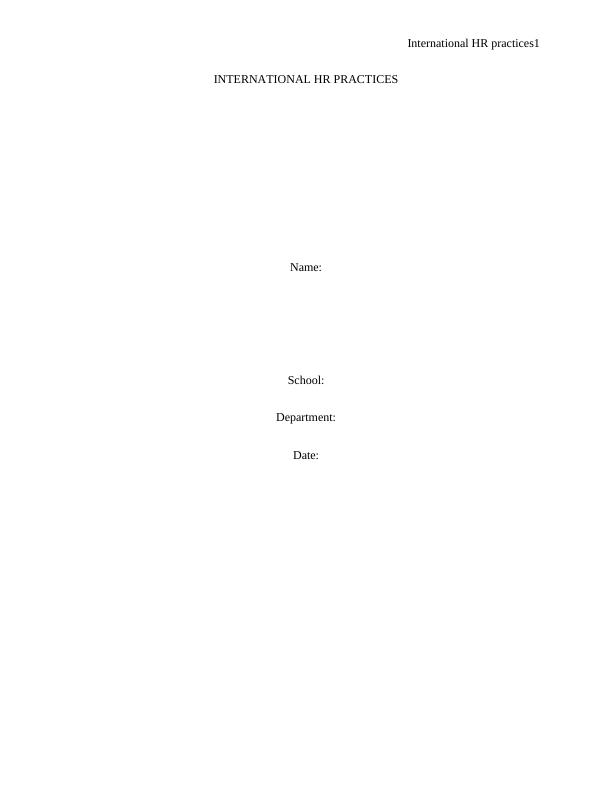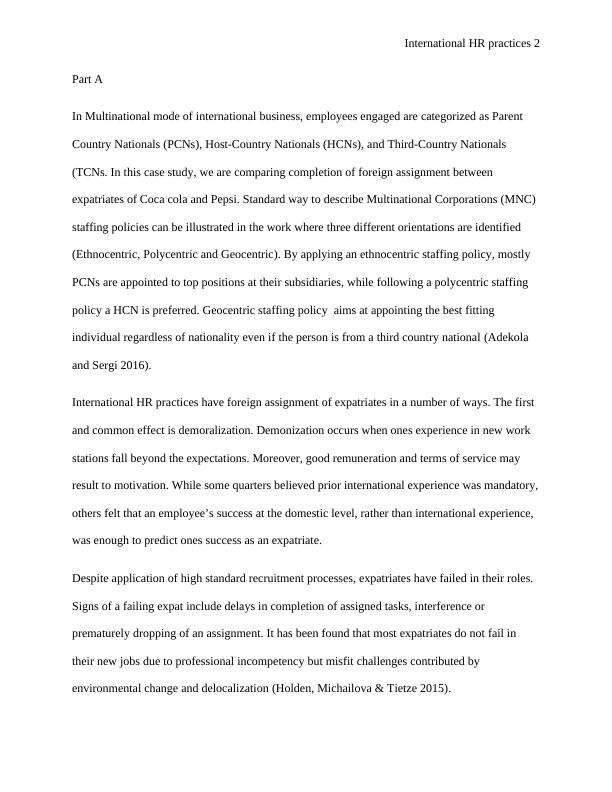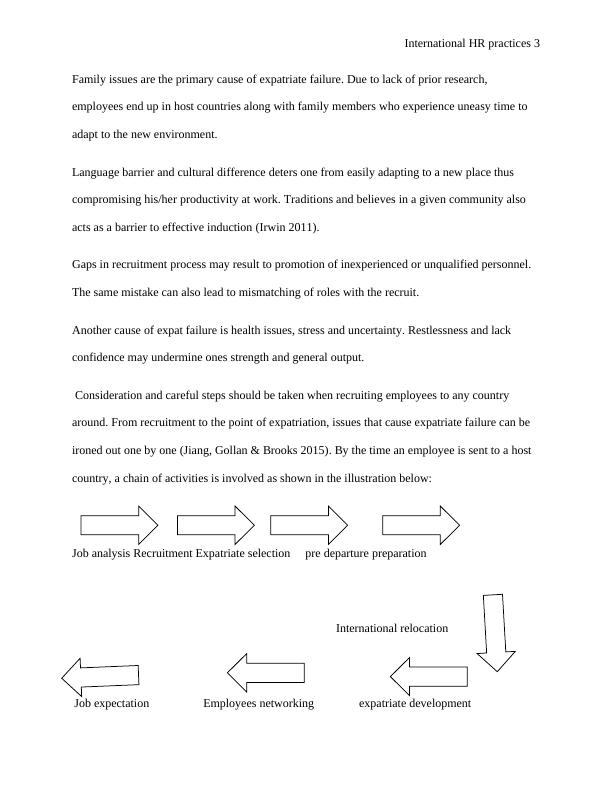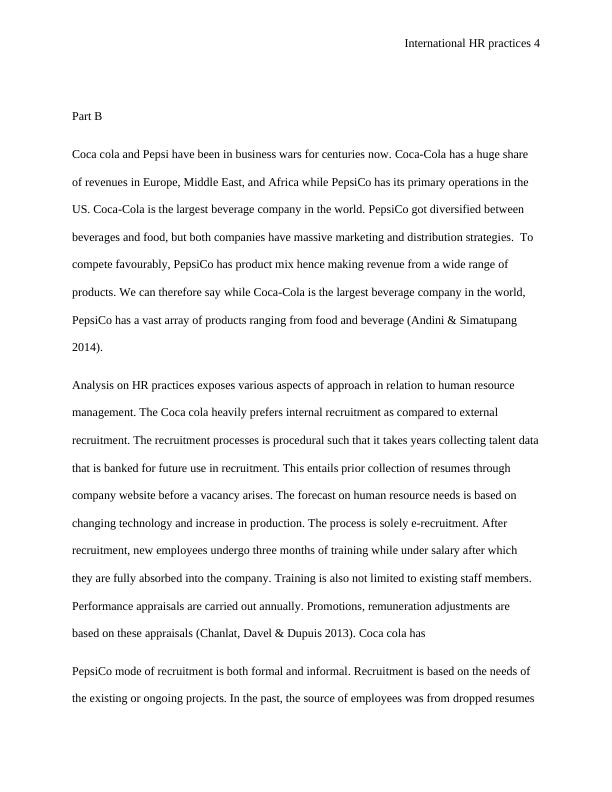International HR Practices in Coca Cola and PepsiCo
Finding and analyzing the association of International HR practices with the successful completion of foreign assignment of expatriates in two multinational organizations.
19 Pages4353 Words231 Views
Added on 2023-04-21
About This Document
This document explores the international HR practices in Coca Cola and PepsiCo and their impact on the successful completion of expatriate assignments. It discusses the different staffing policies and the advantages and disadvantages of PCNs, HCNs, and TCNs. The document also highlights the common reasons for international assignment failure and provides strategies to minimize expatriate failure. Furthermore, it compares the success rates of Coca Cola and PepsiCo in the global market.
International HR Practices in Coca Cola and PepsiCo
Finding and analyzing the association of International HR practices with the successful completion of foreign assignment of expatriates in two multinational organizations.
Added on 2023-04-21
ShareRelated Documents
End of preview
Want to access all the pages? Upload your documents or become a member.
International Human Resource Management - Sample Assignment
|42
|1631
|188
International HRM: Practices, Issues and Challenges
|15
|1037
|297
Free Assignment on International Human Resource Management
|14
|3446
|15
Assignment about Staffing Framework
|7
|1570
|32
International Staffing | Essay
|5
|1128
|26
Cross-Cultural Management of American Company
|15
|507
|499




